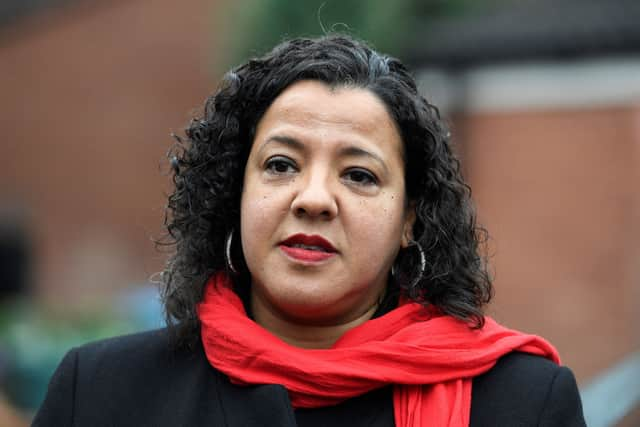How each party wants Liverpool Council to be governed - and how you can have your say on the three options
and live on Freeview channel 276
A brown envelope is currently landing on doorsteps across Liverpool. On first glance it looks fairly innocuous and could perhaps be dismissed.
However, inside, is quite a significant proposal. This month, a consultation began on the future of the structure of power wielding at the top of Liverpool Council.
Advertisement
Hide AdAdvertisement
Hide AdAfter years mired in scandal and negative spotlight, the local authority is seeking your views on how the top of local government in our city should look moving forward.
A total of three options have been mooted – leader and cabinet model, committee system, or maintaining the Mayoralty.
Why are we being consulted?
After being elected last May, Mayor Joanne Anderson vowed to campaign to effectively do away with her own job through a referendum.
As changes were made to the electoral calendar as a result of the damning Caller Report, meaning all out city elections were bumped to next year, a referendum has been deemed too costly by the controlling Labour group at around £500,000.
Advertisement
Hide AdAdvertisement
Hide Ad

At a meeting of the local authority in January, Mayor Anderson’s Labour group presented an option for a consultation on the issue – priced at around £120,000 – to run until June. The Mayor said a consultation would ‘do the same job’ as a referendum and get the same results.
Opinions could not be more different across the aisles at the Town Hall, however. Cllr Tom Crone, leader of the Green Party group, said a referendum was a “worthwhile use of council resources to ensure this city is governed properly.”
Cllr Crone criticised Labour’s plan for a consultation, claiming it represented “wasted money,” would be non-binding and failed to guarantee any meaningful level of engagement.
Who’s backing which option?
Of the existing Mayoral system, St Michaels ward member Cllr Crone, said it had “failed” and the lack of referendum on the position being established in 2012 had created a “democratic deficit” which had “dogged” the city ever since.
Advertisement
Hide AdAdvertisement
Hide AdLiberal Democrat group leader Cllr Richard Kemp outlined the reasons why they would campaign for the committee system via his blog.
Under this model, a council elects a leader but power is exercised by a number of committees, made up of councillors proportionate to the representation of each party on the council.
Wirral Council has operated this system since 2020 but Labour councillors in the borough have since admitted it was “rushed in to” and the authority’s director of law and governance said there was an element of “suck it and see.”
Cllr Kemp said adopting the committee approach would mean “better decision making because the experience of all councillors across all the city will be used to create the council policies that we need.”
Advertisement
Hide AdAdvertisement
Hide AdHe added that: “It’s clear that the people of Liverpool detest and will abolish the Elected Mayoralty” and claimed anyone voting to maintain the status quo “would be mad”.
The veteran member also criticised the way the consultation was being communicated with city residents when he said the letter landing on doormats was “uninspiring and badly thought out”.
Liberal Group leader, Cllr Steve Radford, has backed the Labour proposal, praising the logic around council finances but ultimately wanted to see a Mayoral system implemented with proportional representation.
The consultation runs for the next two months and can be found on the Liverpool Council website.
Comment Guidelines
National World encourages reader discussion on our stories. User feedback, insights and back-and-forth exchanges add a rich layer of context to reporting. Please review our Community Guidelines before commenting.